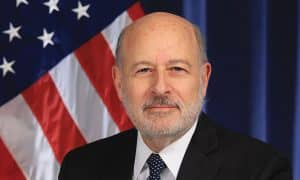The global geospatial community will have its gaze fixed on the UN headquarters this week as the 12th session of the United Nations Committee of Experts on Global Geospatial Information Management (UN-GGIM) takes place Aug 3 – 5 in New York. The first in-person gathering after two years of virtual meetings is significant in many ways. One of the major points in the agenda include strengthening global geospatial information management arrangements and determining the future geospatial information ecosystem.
At the eleventh session, held virtually last year, the Committee of Experts had adopted a decision that emphasized the importance of the Integrated Geospatial Information Framework (IGIF) in providing an overarching paradigm to further strengthen nationally integrated geospatial information management. This applies to not only Member States that were in the early stages of adopting national spatial data infrastructures but also for those that had already successfully implemented spatial data infrastructure capabilities.
However, the committee acknowledged the necessity of continuous collaboration with emerging and complementary initiatives, such as the Geospatial Knowledge Infrastructure (GKI) or the European Union Location Framework Blueprint.
In fact, last week, the co-chairs of the Committee of Experts submitted a report titled “Enhancing global geospatial information management”, to the United Nations Economic and Social Council (ECOSOC) for its consideration and adoption.
The call for strengthening international cooperation in global geospatial information management is gaining ground as the geospatial ecosystem is becoming more and more expansive, thanks to rapid technological developments and mainstreaming of geospatial with the increased use and adoption of geospatial information across diverse government, industry and user sectors. In this background, it’s crucial to get a clear understanding of what the future geospatial information ecosystem beyond the IGIF might look like.
At Geospatial World, we believe partnerships are the wellspring of information exchange, as the genesis and evolution of knowledge is only through multi-level collaboration. That’s why we have been working with the United Nations and national governments in defining and elucidating the role of GKI in bringing together governments, industries, and non-profits to collaborate in an increasingly automated, dynamic, and real-time global environment.
We earnestly believe that Geospatial Knowledge Infrastructure will bolster governmental and private sector efforts in delivering sustainable economic, social, and environmental benefits.
Apart from deliberating on the future geospatial information ecosystem, the other moot points include discussions on various issues such as contribution of regional committees to the global geospatial information agenda; a global geodetic reference frame; building a geospatial information and services for disasters; implementation and adoption of standards for the global geospatial information community; and collaboration with the United Nations Group of Experts on Geographical Names, among others.
As the week progresses, it will be exciting to witness new developments and announcements straight from the UN HQ for setting directions towards nationally integrated geospatial information management and furthering development agendas.
Disclaimer: Views Expressed are Author's Own. Geospatial World May or May Not Endorse it










